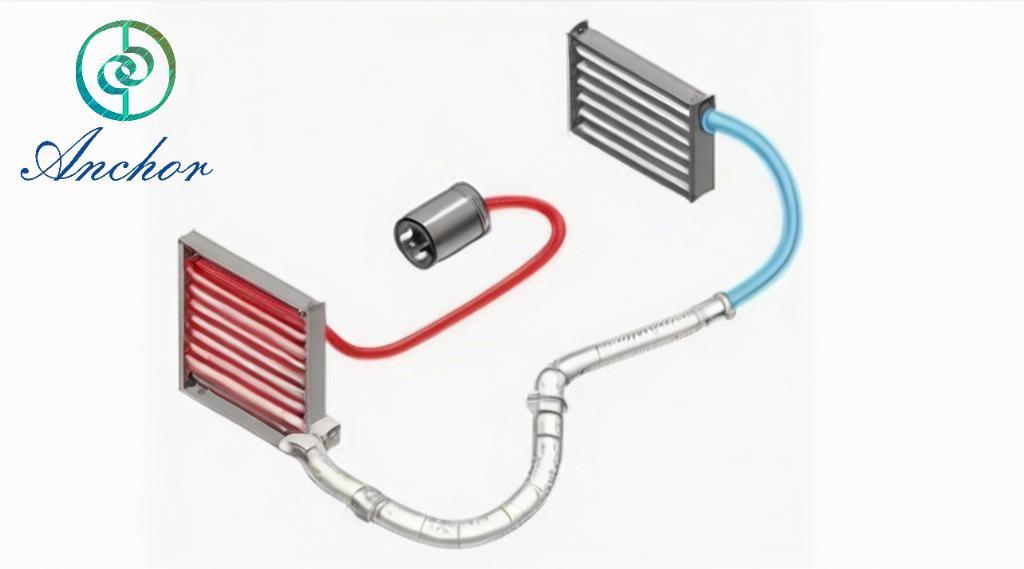
Introduction
Auto air conditioning hoses play a vital role in the functioning of a vehicle’s air conditioning system. They are responsible for carrying refrigerant, allowing it to circulate between the various components of the AC system, ensuring optimal cooling performance. Understanding the significance of these hoses and how to maintain them is crucial for every vehicle owner.
Understanding Auto Air Conditioning Hoses
What Are Auto Air Conditioning Hoses?
Auto air conditioning hoses are flexible tubes made of rubber or aluminum. They connect various components of the vehicle’s AC system, such as the compressor, condenser, evaporator, and receiver-drier or accumulator. These hoses transport refrigerant throughout the system, facilitating the cooling process inside the vehicle.
The Role of Auto Air Conditioning Hoses
Auto air conditioning hoses serve as conduits for refrigerant, allowing it to flow from one component to another within the AC system. Without these hoses, the refrigerant would not be able to reach the necessary parts for cooling, leading to a malfunctioning AC system.
Selecting the Right Auto Air Conditioning Hose
Factors to Consider When Choosing Auto Air Conditioning Hoses
When selecting auto air conditioning hoses, several factors need to be taken into account to ensure compatibility and optimal performance.
1. Material Composition
Auto air conditioning hoses are typically made of either rubber or aluminum. Each material has its advantages and is suited for specific applications. Rubber hoses are flexible and durable, while aluminum hoses offer superior heat dissipation.
2. Compatibility
It’s essential to choose hoses that are compatible with the refrigerant used in your vehicle’s AC system. Using incompatible hoses can lead to leaks or system damage.
Maintaining Auto Air Conditioning Hoses
Tips for Maintaining Auto Air Conditioning Hoses
Proper maintenance of auto air conditioning hoses is essential for ensuring the longevity and efficiency of your vehicle’s AC system.
1. Regular Inspection
Periodically inspect the condition of the hoses for signs of wear, damage, or leaks. Look for cracks, bulges, or soft spots that may indicate deterioration.
2. Keep Hoses Clean
Ensure that the hoses remain free of dirt, debris, and oil buildup, as these can accelerate wear and compromise performance. Clean the hoses regularly using a mild detergent and water.
Common Issues with Auto Air Conditioning Hoses
Identifying and Addressing Common Problems
Despite their durability, auto air conditioning hoses can experience issues over time. Being aware of common problems can help you address them promptly.
1. Leaks
Leaks are one of the most common issues with auto air conditioning hoses. They can occur due to wear and tear, corrosion, or improper installation. Leaks can lead to a loss of refrigerant and diminished cooling performance.
2. Damage from External Factors
Auto air conditioning hoses are exposed to various external factors, such as heat, vibration, and road debris, which can cause damage over time. Protecting the hoses and conducting regular inspections can help prevent damage.
FAQs (Frequently Asked Questions)
How often should auto air conditioning hoses be inspected? Auto air conditioning hoses should be inspected at least once a year or whenever you notice any signs of damage or deterioration.
Can I repair a leaking auto air conditioning hose myself? While minor leaks may be repairable using patch kits, it’s recommended to have leaks professionally repaired to ensure proper sealing and prevent future issues.
What are the signs of a failing auto air conditioning hose? Signs of a failing auto air conditioning hose include reduced cooling performance, hissing noises from the AC system, visible leaks, and unusual odors.
Are aftermarket auto air conditioning hoses as reliable as OEM ones? Aftermarket auto air conditioning hoses can be just as reliable as OEM ones if they meet the necessary quality standards and specifications.
How long do auto air conditioning hoses typically last? The lifespan of auto air conditioning hoses can vary depending on factors such as usage, maintenance, and environmental conditions. On average, they can last anywhere from five to ten years.
Is it necessary to replace all auto air conditioning hoses at once? While it’s not always necessary to replace all hoses simultaneously, it’s recommended to replace them in sets or as needed to maintain the integrity of the AC system.
Conclusion
Auto air conditioning hoses are integral components of a vehicle’s AC system, responsible for circulating refrigerant and facilitating cooling. By understanding their importance, selecting the right hoses, and implementing proper maintenance practices, you can ensure optimal performance and longevity of your vehicle’s AC system.
